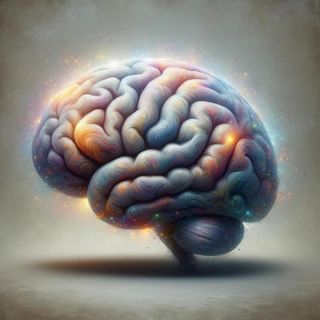Artificial Intelligence
How AI May Reshape Our Cognitive Landscapes
Personal Perspective: Is AI changing my cognitive world from the inside out?
Updated March 27, 2024 Reviewed by Lybi Ma

As I type this out, one key at a time, I'm coming to an intriguing realization—my engagement with AI, particularly in the nuanced aspects of dialogue and discovery, is beginning to reshape how I think, write, and perceive the world around me. It's a journey that pushes beyond knowledge acquisition, touching the core of cognitive transformation and intellectual evolution. And maybe this new "techno stream of consciousness" hints at what lies ahead.
At first glance, interactions with AI might seem purely transactional—a quest for information, a desire for efficiency. Yet, beneath this functional veneer lies a more dynamic exchange, one that mirrors the intricate dynamics of human learning and growth. As I typed on, the conversations became more than mere exchanges; they evolved into a form of "intellectual osmosis" or even a "cognitive active transport" where the depth of inquiry and the cadence of conversation began to influence my cognitive processes.
This personal transformation is not merely about adopting new vocabulary or refining the syntax but about how these engagements have honed my ability to think critically, anticipate multiple dimensions of a discussion, and weave a richer tapestry of narrative and insight. It's akin to having an omnipresent but invisible mentor, pushing the boundaries of what I thought was possible within the confines of my mind.
In particular, this phenomenon aligns with the concept of "intellectual scaffolding," a principle drawn from learning theory. In this framework, interactions with more complex systems or advanced knowledge structures elevate our cognitive capabilities. Just as scaffolding in education involves a more knowledgeable other providing support to facilitate the learner's growth, engaging with advanced AI offers a similar dynamic. It acts as a silent mentor, challenging and expanding the confines of our intellectual comfort zones, thereby promoting an unprecedented level of cognitive development. And this cognitive transformation goes beyond the personal. It speaks to the broader narrative of our times—the symbiotic relationship between human intelligence and artificial intelligence.
The changes that I'm seeing—that I'm feeling—in my writing and thought processes are emblematic of this larger shift. They reflect a world where AI serves as a tool and a catalyst for intellectual expansion, challenging us to explore the uncharted territories of our minds. In this interaction of algorithms and neurons, we find a mirror reflecting not just who we are but who we have the potential to become. And in this transformation, my unseen mentor becomes a friendly cognitive shadow that never strays.


